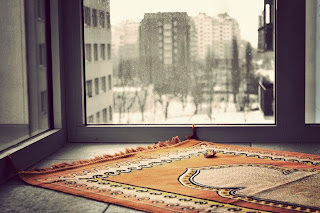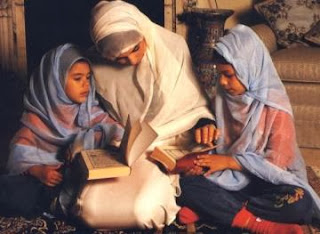Prophet Yunus (as) - The Man Who
Survived In The Belly Of A Fish
The inhabitants of the town of
Nineveh were idol worshippers. They lived a shameless life. Prophet
Yunus was sent to teach them the worship of Allah. The community disliked
his interference in their way of worship and said, “We and our forefathers have
worshipped these gods for many years and no harm has come to us.”
Try as he may to convince them of
the foolishness of worshipping idols and the goodness of Allah’s laws, they
ignored the Prophet. He warned them if they kept on with their
foolishness Allah’s punishment would soon follow. Instead of fearing
Allah they had told Yunus that they did not fear his threats. “Let it
happen,” they told him. Yunus was disheartened, “In that case I will
leave you to your misery!” So saying, he left Nineveh, fearing that Allah’s
anger will soon follow.
Hardly had he left the city when the
skies began to change colour and looked as if it were on fire. The people
were filled was fear by the sight. They recalled the destruction of the
people of ‘Ad, Thamud and Nuh. Was theirs to be a similar fate?
Slowly faith penetrated their hearts. They all gathered on the
mountain and started to beseech Allah for His Mercy and Forgiveness. The
mountains echoed with their cries. It was a momentous hour, filled with
sincere repentance. Allah removed His Wrath and showered His blessings
upon them, once again. When the threatening storm was lifted, they prayed
for the return of Yunus so that he could guide them.
Meanwhile, Yunus had boarded a small
boat in the company of other passengers. At sea, a storm brewed and the
boat was tossed about by the roaring waves which rose as high as the
mountains. The boat was overloaded. They threw out their luggage but
this was not enough. They safety lay in reducing the weight
further. They decided among themselves to lighten their load by removing
at least one person. They drew lots so everyone may have a fair
chance. In the draw Yunus’ name came up.
Since they knew him to be the most
honourable among them, they did not wish to throw him into the stormy sea, so
they decided to draw lots the second time. Again Yunus’ name was
drawn. They give him a final chance and drew a third lot.
Unfortunately for Yunus his name came up again. Yunus realised that Allah’s
hand was in all this. For he had abandoned his mission without Allah’s
permission. This was a serious error on his part. But before he
could be thrown overboard, Yunus took Allah’s name and jumped into the raging
sea and disappeared beneath the huge waves.
In The Belly
When Yunus opened his eyes he found
himself lying on a wet, spongy base. Everything above and around him was like a
sealed cave, covered in total darkness, but soft and spongy. He felt
jerks, like in a boat whacked by waves. Yunus discovered that he was in
the belly of the huge fish, that his Lord had commanded a large fish to swallow
him so as to protect him from the stormy sea. Immediately he turned to
Allah to confess his guilt, “There is no God save Thee! Glorified be
Thou! Indeed, I have been a wrongdoer.” The Oft-Forgiving, Most Merciful
Allah excepted his prayer. The next moment Yunus felt himself being
forcefully drawn and he was rapidly sliding towards an opening. With a
thud he landed on soft sand. Allah had commanded the fish to spew him out
onto land. Yunus again turned to Allah to express his heartfelt thanks.
He was lying on the deserted shore,
sick and lonely. He was surrounded by leaves of a large gourd plant,
which sheltered him from the burning sun. They were enough gourds for him
to enjoy. Gradually regained his strength and found his way to his
hometown, Nineveh. He was pleasantly surprised to notice the change that
had taken place there. The entire population had turned up to welcome
him. They informed him that they had turned to their True Lord.
Together they led a prayer of thanksgiving to their Merciful Lord.
This story is taken from -
77 Selected Stories from the Quran - Graphically retold by Sheikh A. Najaar (Allah ya hamu)
77 Selected Stories from the Quran - Graphically retold by Sheikh A. Najaar (Allah ya hamu)






























